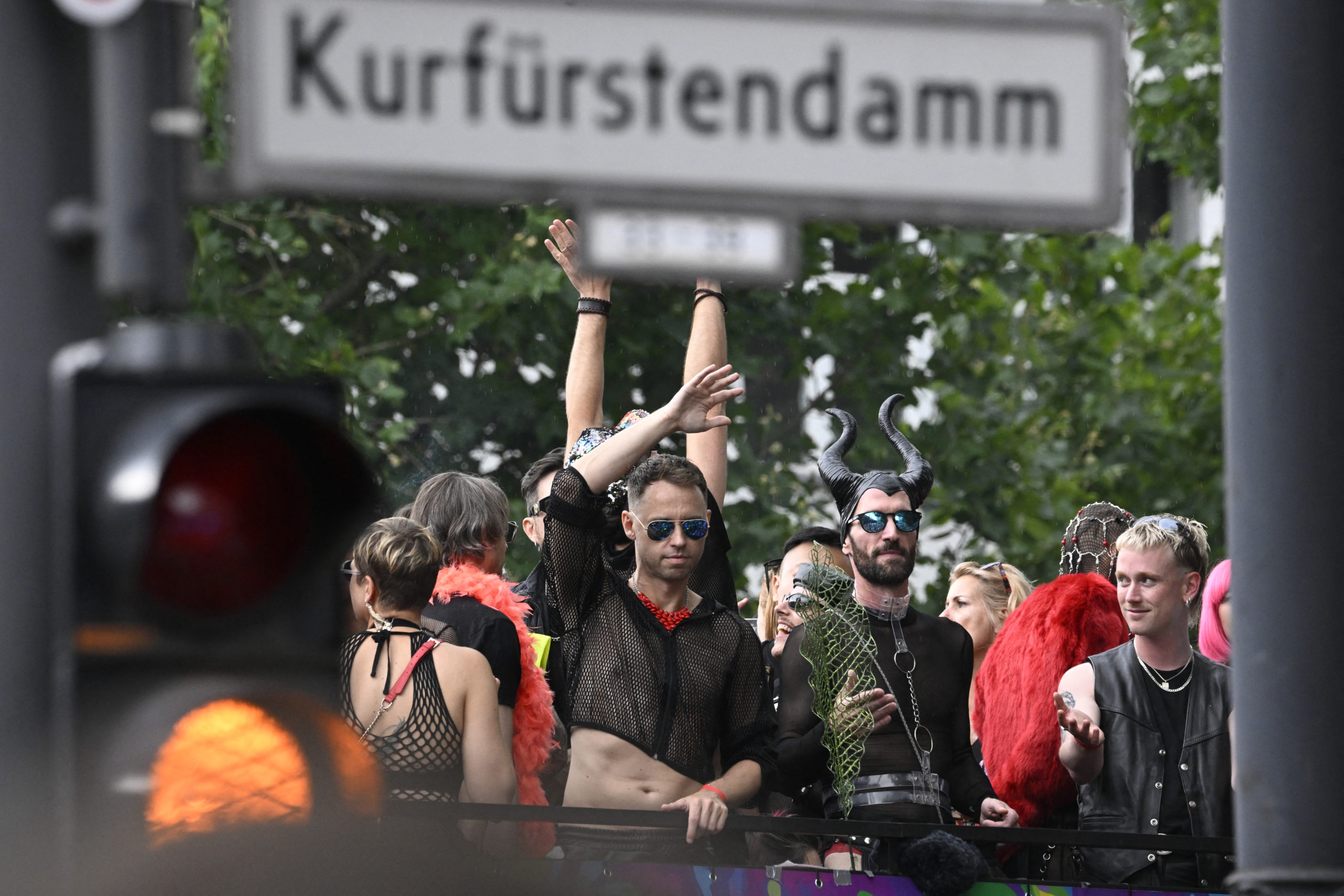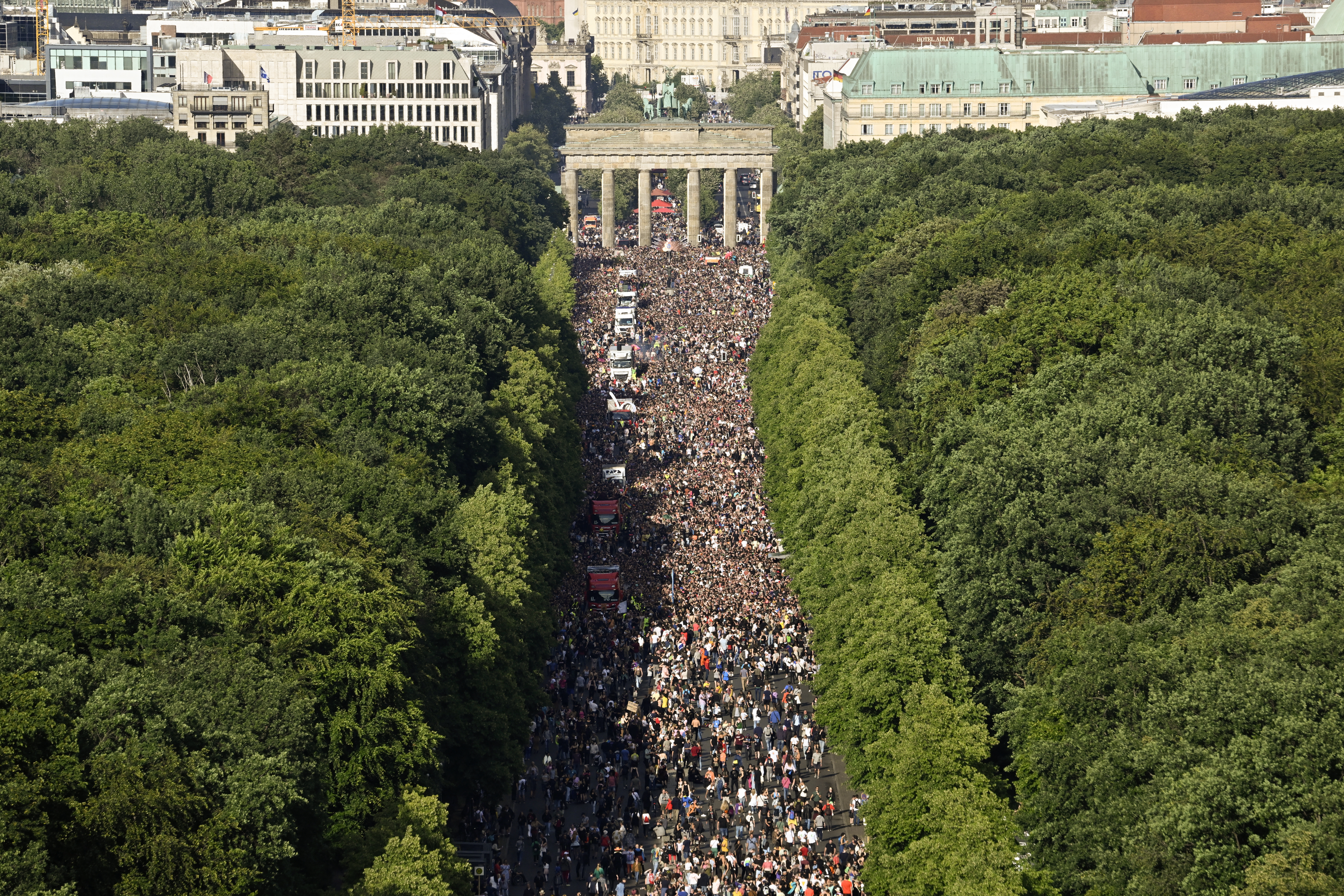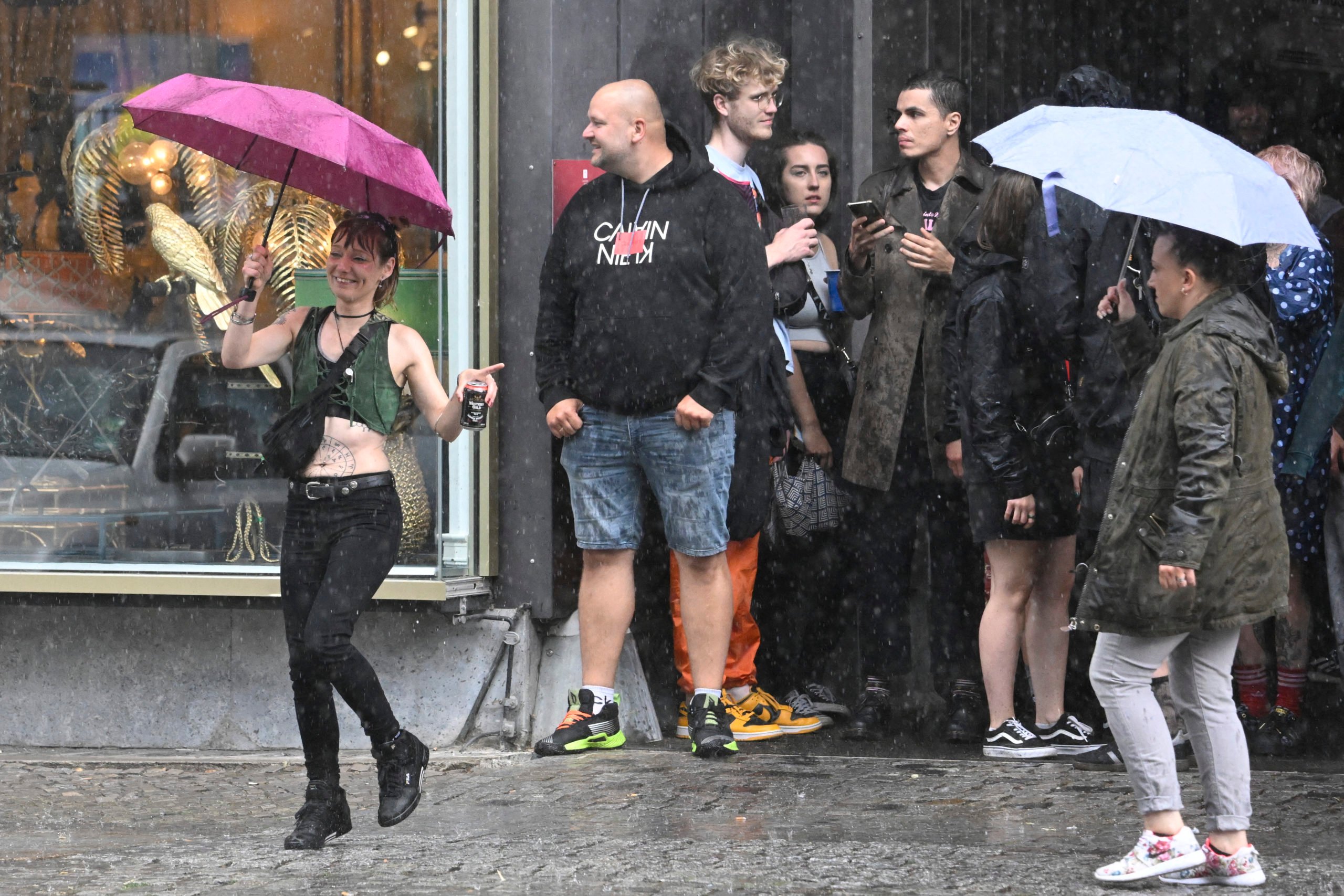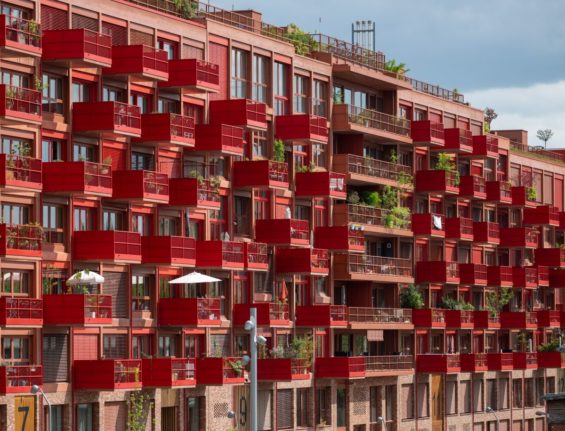Organisers of “Rave the Planet” expected around 25,000 people for the dance and music parade, which started in rainy conditions at the Ku’damm thoroughfare.
The march was initiated by famous DJ Dr Motte, whose “Love Parade” festival played an instrumental role in creating Berlin’s reputation as Europe’s techno music capital after the fall of the Berlin Wall in 1989.

In the evening, police spoke of the number of participants being in the “low hundreds of thousands” while at the end of the parade, Dr Motte himself said 300,000 people took part, regional channel RBB reported.

The event, postponed last year due to the Covid-19 pandemic, covered seven kilometres (four miles) and crossed west Berlin before finishing at the Victory Column in Tiergarten Park, one of the city’s major landmarks.
In 1989, Dr Motte created the Love Parade, which became a globally recognised event in the following years, and kicked off proceedings on Saturday.

The DJ, 62, denounced the Love Parade’s commercialisation, called for a universal basic income for artists and asked for Berlin’s techno culture to be added to UNESCO’s intangible cultural heritage list, according to regional
channel RBB.

The Love Parade reached its peak in 1999 when 1.5 million party-goers, many wearing costumes, gathered behind vehicles blaring out loud techno music.

The festival moved from Berlin to the ex-industrial Ruhr region, where it lost some of its lustre before a deadly incident in 2010 that shocked Germany.

On 24 July that year, 21 people died in a stampede when panic broke out in a narrow tunnel that served as the only entrance and exit to the event. More than 650 people were also injured.





 Please whitelist us to continue reading.
Please whitelist us to continue reading.
Member comments